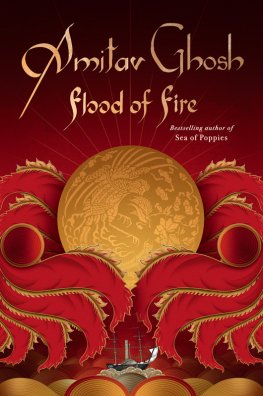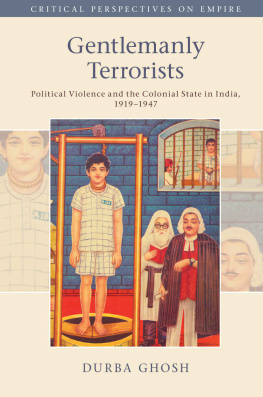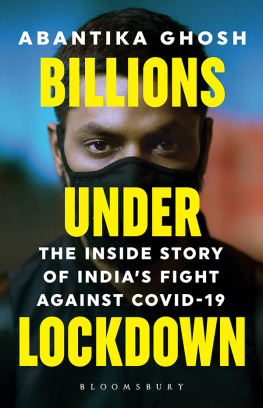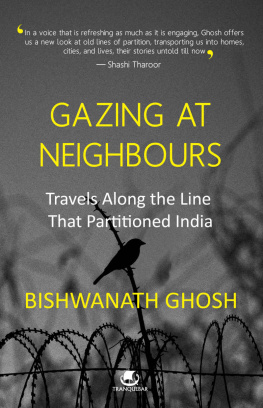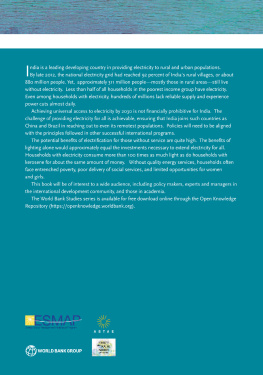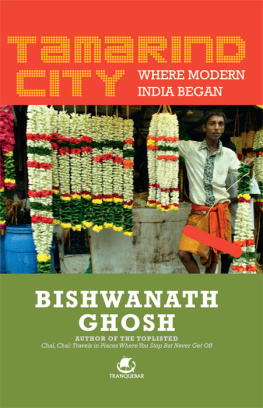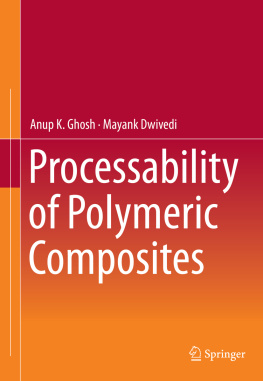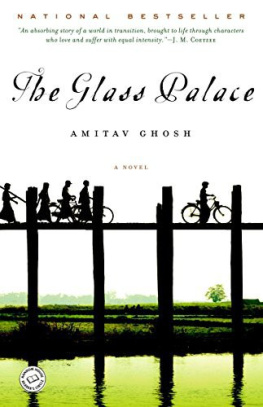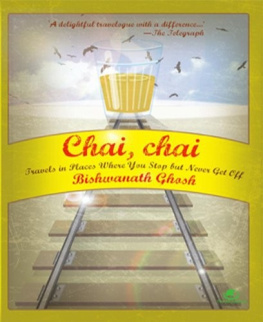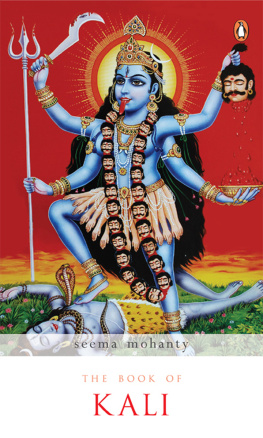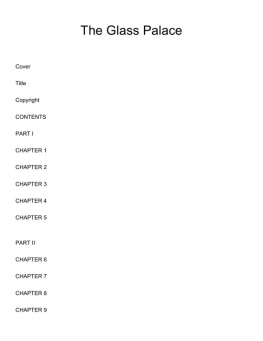First published 2018
by Routledge
2 Park Square, Milton Park, Abingdon, Oxon OX14 4RN
and by Routledge
711 Third Avenue, New York, NY 10017
Routledge is an imprint of the Taylor & Francis Group, an informa business
2018 The estate of Kali Ghosh and Social Science Press
The right of Kali Ghosh to be identified as author of this work has been asserted by him in accordance with sections 77 and 78 of the Copyright, Designs and Patents Act 1988.
All rights reserved. No part of this book may be reprinted or reproduced or utilised in any form or by any electronic, mechanical, or other means, now known or hereafter invented, including photocopying and recording, or in any information storage or retrieval system, without permission in writing from the publishers.
Trademark notice: Product or corporate names may be trademarks or registered trademarks, and are used only for identification and explanation without intent to infringe.
Print edition not for sale in South Asia (India, Sri Lanka, Nepal,
Bangladesh, Afghanistan, Pakistan or Bhutan).
British Library Cataloguing in Publication Data
A catalogue record for this book is available from the British Library
Library of Congress Cataloging in Publication Data
A catalog record for this book has been requested
ISBN: 978-1-138-55256-2 (hbk)
ISBN: 978-1-315-14839-7 (ebk)
Typeset in Sabon LT Std 10/13.1
by Eleven Arts, Delhi 110 035

Portrait of Kali Ghosh
Kali was the kindest of my grandparents. My fathers parents, Gunnar Myrdal and Alva Myrdal, worked hard and I didnt really get to know them until I was a grown up. (Gunnar wrote Asian Drama, and Alva was the Swedish ambassador in India.) My maternal grandmother Paula Wiking, divorced her Swedish husband (Sven Wiking), and moved to London to work as a translator. I rarely met my biological maternal grandfather and after the age of about eightnever. Paula was strict and temperamental, and besides she died early. She married Kali Ghosh in the early 1930s. They were poor and active in the communist party. Later both worked as journalists for Blitz, and lived a middle class life. When I was a teenager in the 1960s they lived in Kilburn, in northern London.
Kali was the sort of grandfather who, when you stayed with him in London and your mother was not there, let you have as much peanut butter as you wanted on the sandwich. The only thing that happened was that he afterwards, incidentally, would remark to my mother: He likes peanut butter.
He always encouraged me. Once when he visited us in the small town where we livedmy mother and Iin southern Sweden, he attended a meeting in the Amnesty group. I gave a presentation, I could have been seventeen years old, and afterwards he said It was a very good presentation. How can you know? It was in Swedish, I said. He answered: I heard it in your voicewell formulated and with enthusiasm.

Kali Ghosh-Proud Grand-Father
Once, after my grandmother had died, we visited him in London. Kali had decided to make an Indian dinner for us. He was in the small kitchen, and then my mother and I sat around the round table in the living room with a piano and a lot of books. Through a large window and the open doors we looked out towards the walled garden, with trees and shrubs so you hardly noticed the wall. The garden was an oasis, with meandering garden paths, surrounded by flowers. It was summertime. After quite some time Kali came with the food he had eaten as a child. Spicy. He did it to please us. Normally he was more of an English gentleman, behaved, dressed and ate as other Englishmen did.
Politically he was a socialist (like the rest of my family). Of course he grew up as a Hindu. He was a Kulin Kayastha, and I have inherited his English translation of the Upanishads. But we never spoke of religion.
As shown in his autobiography he first lived in Khulna in Bengal (Bangladesh), where his father worked as a lawyer, and then moved to the village Senhati a few kilometers to the north, just north of the river confluence. On the other side was Dalautpur, today more or less a suburb to Khulna. Like so many, I wish now that I had asked my elderly relatives more. The only thing I really can remember that he told about his childhood village and region was that after the split between West Pakistan and East Pakistan, and the establishment of Bangladesh, he and his family had regained ownership of their estates. He belonged to a family of zamindars, and the family owned large estates in Sunbardans in the Ganges delta.
Another thing we didnt talk about was his revolutionary youth. I had a vague knowledge about the autobiography, that we later inherited (and which now is published), and my mother and her sisters sometimes mentioned that Kali took part in the struggle for Indias national liberation.
Again, I only have one memory, but a strong one. I was nineteen and had to do military service, and had decided to conscientious objection. I was very obsessed with this decision, as it was illegal in Sweden at that time, so I discussed it with Kali. He looked at me with his gentle smile, as he always did. And then he formulated a thoughtful reply. Earnest and with some determination he explained to me that I instead should try to become an officer. As a socialist I must be prepared to lead the masses in armed struggle.
The manuscript has never been made public before, with one exception that must be mentioned. My father, Jan Myrdal, borrowed it and made detailed use of it in two books about India. Unfortunately he forgot to mention that his account is based on Kali Ghoshs own text, which now can be read in its entity and in Kalis own words.
It was my grandmother Paula Wiking-Ghosh who persuaded Kali to write this book. Later in life he published a book about his beloved India: The Indian Way (London and New Delhi 1972). He dedicated it to his late wife Paula: who loved India proudly and wielded her pen for its cause. Paula is worth her own book and perhaps I will return to her. The book The Indian Way also presents Kali as having taken part in the revolutionary and Congress movements in India, but of late coming to consider himself closer to nationalism.
I have often read Kalis autobiography, and I am now very happy that it can be published with the Social Science Press. My daughter Kristina converted it from the typescript to a computer file. Gunnel Cederlf helped me to find a scholarly publisher and has written a very fine introduction. And Esha Btellle, at the Social Science Press, has encouraged us, and Chandana Dey has skillfully edited it.







